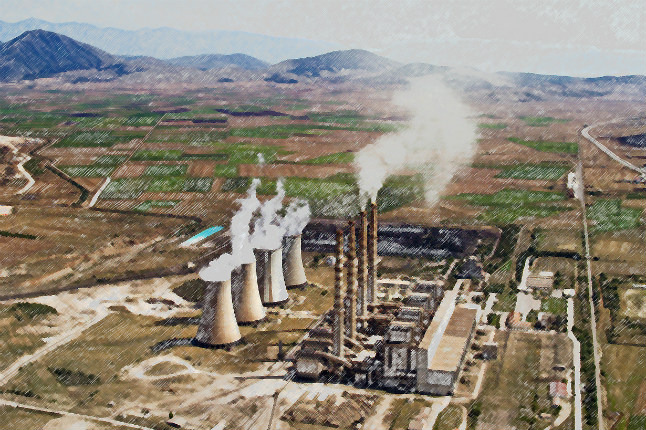Pop Quiz: How Do You Exploit Earth Day?
True or False? Earth Day was created in 1970 to celebrate all the wonderful ways that our society benefits from mining coal, extracting natural gas and burning fossil fuels.
If you were a student in Utah this year, you might be tempted to answer "True," thanks to an Earth Day poster contest that's being promoted in the state's elementary schools. Sponsors are the Society of Petroleum Engineers, Salt Lake Petroleum Section and the Utah Division of Oil, Gas & Mining.
I was at a friends' house a few days ago when I first learned about the contest. There was a poster sitting in the living room that proclaimed: "Where would we be without oil, gas, and mining?" Underneath, it had drawings and descriptions of things like "No electricity," "No diamonds," and "No Disneyland." I asked what the poster was for, and my friend told me it was for the Earth Day poster contest going on at the school our children attend together.
I wasn't sure I'd heard her correctly. An Earth Day poster contest?
She told me she was understandably a bit confused by the contest guidelines herself, but then showed me where to read about them, so I did. They can be found at http://bit.ly/Zu7708. Flabbergasted by what I read, I did some research to find out more. "Entry Instructions for Principals and Teachers" for the contest can be found at http://1.usa.gov/X0Kgcu.
Students are instructed to "Show where we would be without ... oil, gas, and mined minerals." For instance: "Coal, oil and natural gas provide most of the energy we use for heat, light, and electricity. We use mined materials and petroleum products every day in gasoline, cars, computers, skateboards, home-building materials, and tools."
Posters are to be judged on their "demonstration of how products from mining and oil & gas extraction are essential to our daily lives." Among other prizes, the winners will receive a certificate signed by Republican Gov. Gary Herbert.
As this seemed like an odd emphasis for Earth Day, not to mention a one-sided view of fossil fuels, I wrote letters asking for an explanation to the governor, my state senator, Stuart Adams, and my representative to the Utah House of Representatives, Roger Barrus. So far, Rep. Barrus is the only one to reply. "There is a program in our schools called mineral literacy," he explained. "It is not propaganda... The school curriculum is already heavy with the renewable side of the energy discussion, which often demonizes fossil energy. That's propaganda."
I don't think it is propaganda to state the obvious—that burning fossil fuels pollutes our air and in high concentrations creates a health hazard—especially for those of us living along the Wasatch Front. Is educating our children about these facts "demonizing fossil energy" and spreading propaganda, or is it simply calling a spade a spade?
The state should not be backing an "Earth Day" contest that celebrates fossil fuels while completely ignoring the adverse effects that their extraction and use can have on the air we breathe, the water we drink, the public lands we love to visit and the wildlife and other organisms with whom we share the world. Earth Day should not be exploited to celebrate our dependence on fossil fuels without including the truth about their incontrovertible downsides, including the fact that oil and gas will not last forever.
I live in Salt Lake City, and we've just made it through one of the worst winters on record for air quality, rivaled only by Beijing, China. It seems cynical that the state would celebrate spring's arrival by pushing a contest on Earth Day that basically encourages our kids to do free public relations work for the petroleum industry.
This Earth Day, my friend's daughter might look at her poster and think: "Thank goodness we have fossil fuels! Without them we wouldn't have electricity!" She might never consider that there are other sources of electricity or notice the failure to include solar, wind, geothermal and other alternative forms of energy. These alternatives are the kinds of things we should explore on Earth Day. In fact, they represent the future we must head toward.
The more polluting varieties of energy sources get plenty of time in the spotlight the other 364 days of the year; not just due to their huge ad budgets, but also to devastating events such as pipeline spills and oil field fires. Let's not confuse our children about the point of Earth Day: It was founded decades ago to educate people about the need to protect our planet's environment.
–
This essay first appeared in High Country News.
